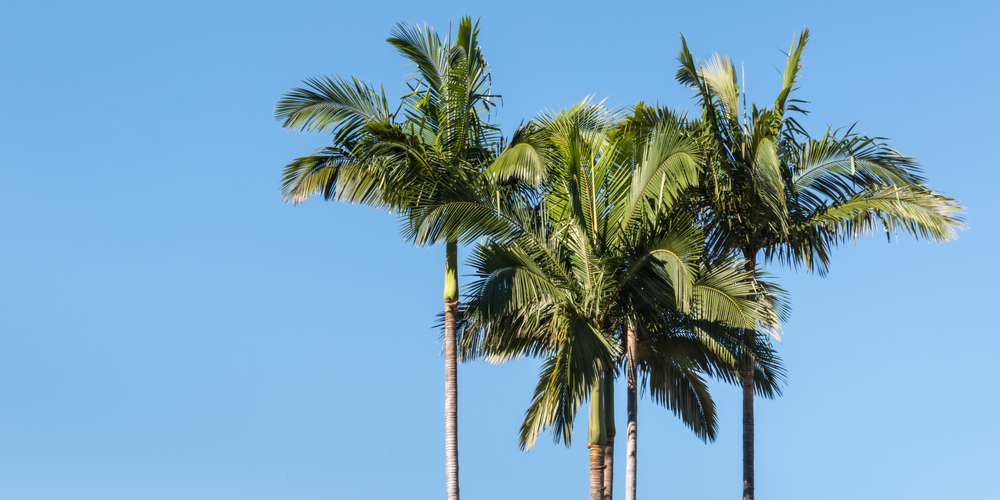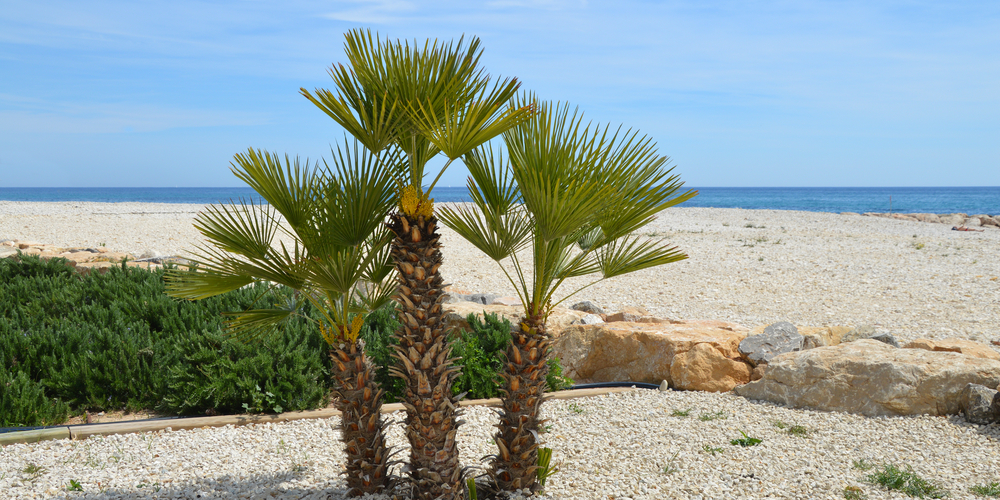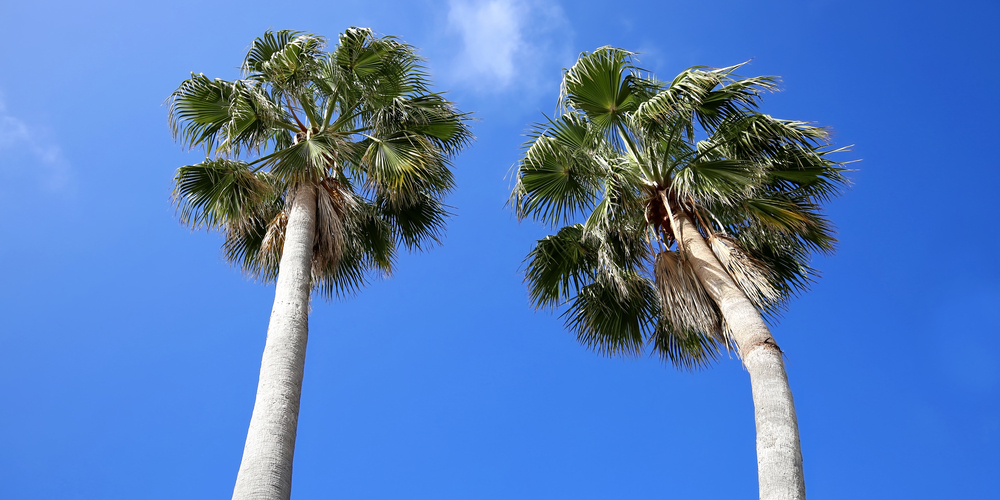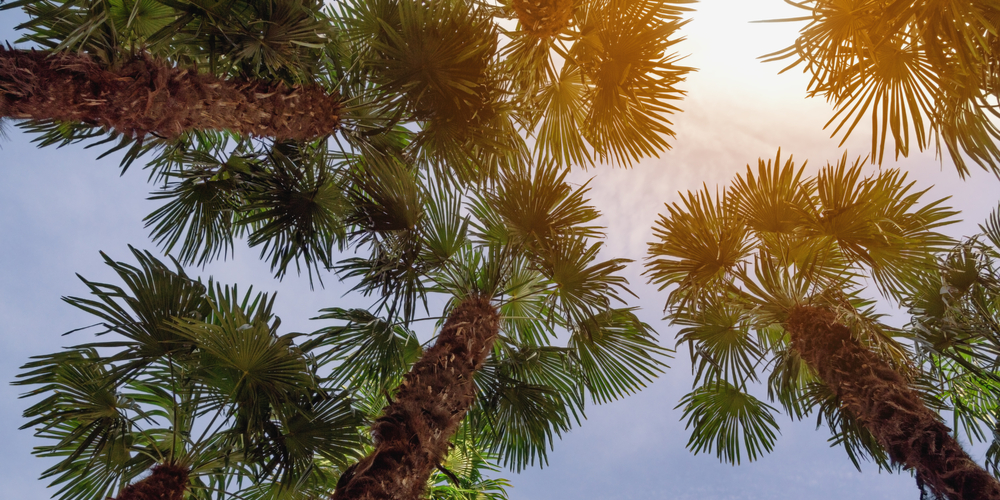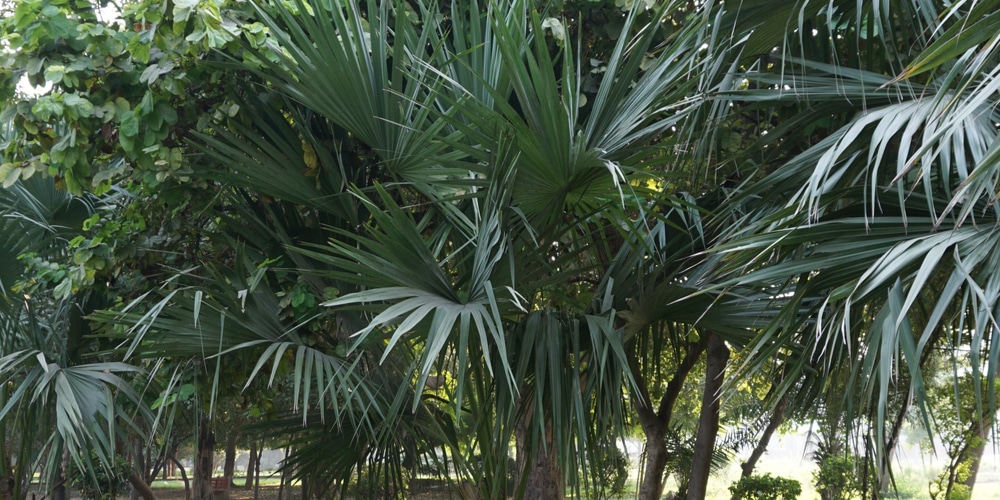When thinking about palm trees, the first thing that comes to mind is an image of a tropical beach. So, these plants can make any landscape look more exotic. But what if you don’t live in a region with a tropical climate such as Florida or California? But are there palm trees in North Carolina?
Well, we have good news for you. Some species of palm trees will grow well even in slightly milder weather. And what varieties perform better in this state? Keep reading this essential guide to finding out!
Are There Palm Trees in North Carolina?
If you have always wanted to grow a palm tree in your garden in North Carolina, don’t worry: you don’t have to abandon your dreams. After all, this state has a humid subtropical climate with mild winters and warm summers, perfect for growing palms.
However, don’t forget that this region includes three USDA growing zones: from 5 to 8. So, the northern parts might not be suitable for these plants. But while it might be challenging to grow palm trees up north, you’ll have no issues doing so in the warm regions of North Carolina.
Still, don’t forget to protect your plants from the winter temperatures! Consider purchasing suitable cold protectors to avoid freeze damage, especially if the climate is windy. If the winters are mild, mulching around your palm trees with be a good enough (and cheap) protection.
But what varieties of palm trees should you consider planting in North Carolina? You’ll find our favorite options in the following sections!
Windmill Palm
The Windmill Palm, native to the Himalayan region, is one of the world’s hardiest palms. Indeed, this species can survive frost and perform well even as far north as the Pacific Northwest or the eastern parts of the New York state.
These plants can reach between 10 to 20 feet in height and aren’t particularly challenging to grow. For best results, plant them in a location that receives partial sun. Also, don’t forget to keep them moist, but not wet, as these plants are susceptible to root rot.
Cabbage Palm Tree
Another cold-hardy palm tree that you might want to add to your yard in North Carolina is the Cabbage Palm tree.
This plant is a slow grower and can tolerate various soil conditions. It grows best in USDA hardiness zones between 8 and 11, making it suitable for the warmer areas of North Carolina. But beware: this plant might grow up to 60 feet tall under ideal conditions.
Also, keep in mind that temperatures below 11 F° will kill this palm tree. Don’t forget to protect them during the winter, despite their cold-hardiness.
Water them deeply during the first months after planting. After that, you won’t have to worry too much about moisture: these plants are tolerant to drought.
California Fan Palm Tree
California Fan Palm Tree is probably one of the most common species in North Carolina. The truth is that thanks to its versatility, this palm tree is a popular choice regardless of the region. Indeed, this plant has superior durability and adapts to various soil conditions and climates.
For instance, it will withstand temperatures as low as ten degrees Fahrenheit, making it suitable for the southwestern parts of North Carolina. Plant it under the full sun and water it occasionally but thoroughly during the hot summer months.
Mazari Palm Tree
The Mazari Palm tree is the perfect option to add a unique exotic touch to your yard. This plant is rarer than other palm trees in this guide. Still, it is suited to North Carolina, especially the southernmost regions.
Growing a Mazari Palm tree isn’t a challenging task. The plant adapts to various soils and climate conditions. Keeping this tree moist will speed up its growth. Consider adding a thick layer of mulch around its base to increase drainage and improve water retention.
Needle Palm Tree
If you don’t live in the Southern regions of North Carolina, you should consider planting a Needle Palm tree in your yard. This plant tolerates temperatures as low as 10°F and will survive frost.
Contrary to most palm trees, it won’t die in freezing weather as low as -5F°. Of course, that doesn’t mean you can skip the winter protection.
You can plant it in the shade or the sun. However, don’t forge to avoid adding it along narrow walkways: its needles are sharp and might harm people passing by.
Related Article: Indoor Palm Trees
